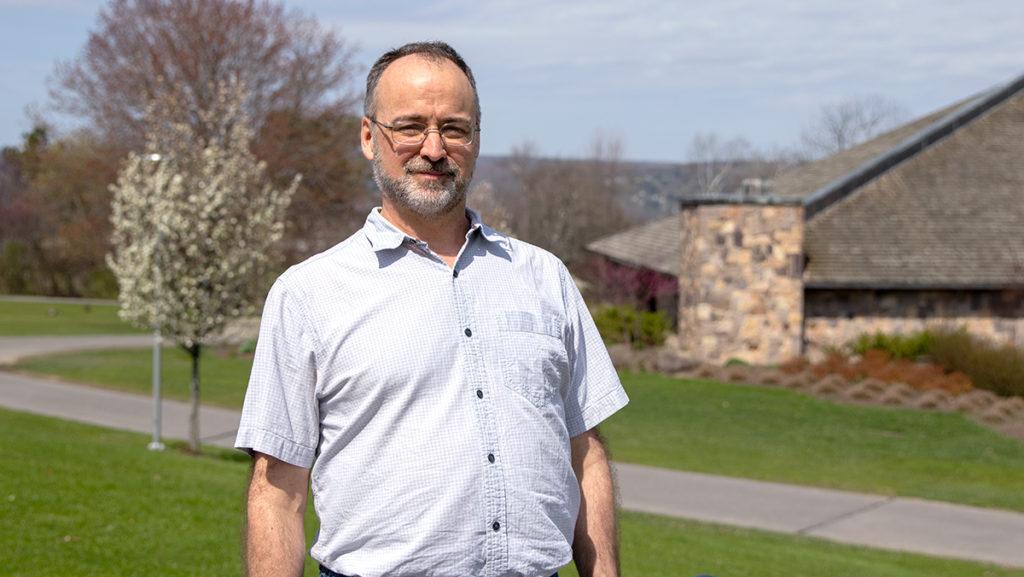Here are two things I love about Ithaca College. My faculty colleagues — so dedicated to their students, so accomplished and so caring of each other. I’ve had two recent opportunities to learn of some of the things our faculty are doing across campus that don’t get headlines: the books they have published, studies they have made, talks they have given, innovations in teaching they are exploring. They are amazing, and I am humbled to be among them and to learn from them.
And our students; all of our students, bringing goodwill and hard work and a collaborative spirit to our classrooms, labs and performance spaces. There is a reason the locals in Ithaca, even many of those working at that other institution on that other hill in town, see the college as “their” school: the students are a joy to have in the community. (Just this week a local said this to me, and it was not the first time.)
I feel privileged to be here. Yet it has been a hell of a few years to be in this community.
COVID-19 — sheesh, what a thing. Professors are strategizing with each other (as are staff!) about how best to help students cope, rebound from the difficulties that online learning forced the world into, and more. And Ukraine, and political fragmentation with its deficits in civil discourse. And echo chambers like no human society has ever before created, feeding that fragmentation and building a pandemic of anxiety, left, right and center. And our own community’s painful need to resize the college and balance our budget, with all the confusion and fear that comes with any such change.
We can’t expect our lives, our community and our world to comfort us with an easy, plush reality. The world, after all, is not inherently just or fair; we must work to make it so. Each of us will have crises in our families and lives as well as wonders in them; so will communities; so will schools; so will nations and the world.
So, what do we do now?
On the wall of an orphanage in Calcutta (then called) were these words, written by a woman now considered a saint in the Catholic church. Perhaps her thoughts offer us something, too, as our community wrestles with a world a bit mad, a rough couple of years in our own community, and, of course, all the “normal” problems of life, family, and community. Mother Teresa urges us to build:
People are often unreasonable, irrational, and self-centered. Forgive them anyway.
If you are kind, people may accuse you of selfish, ulterior motives. Be kind anyway.
If you are successful, you will win some unfaithful friends and some genuine enemies. Succeed anyway.
If you are honest and sincere people may deceive you. Be honest and sincere anyway.
What you spend years creating, others could destroy overnight. Create anyway.
If you find serenity and happiness, some may be jealous. Be happy anyway.
The good you do today will often be forgotten. Do good anyway.
Give the best you have, and it will never be enough. Give your best anyway.
In the final analysis, it is between you and God. It was never between you and them anyway.
If she were with us in 2022, she might have added something like: “Your echo chamber might tell you it is hopeless, bleak, and you should respond with outrage. Turn down the volume on that echo chamber and build your community anyway.”
I have her quotation tagged up on my bulletin board above my desk. If this quote is not for you, find the one that is and put it somewhere you’ll see it. Just remember that we have 6,000 people in this community trying to find our way through the messiness that is 2022, and there is a wellspring of goodwill and hope and support around you, and hope and goodwill are things that, the more you share, the more you have. In exactly the same way, but in the other direction, so are fear and distrust. We can share either. Let’s pick goodwill.














